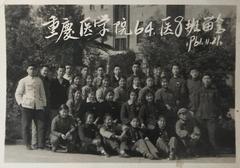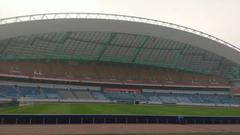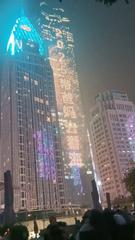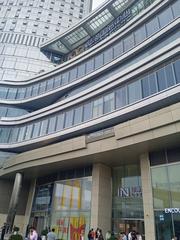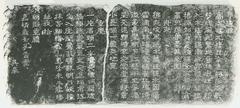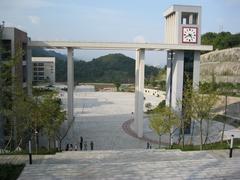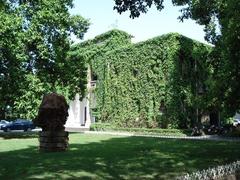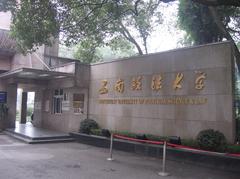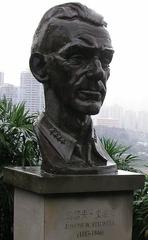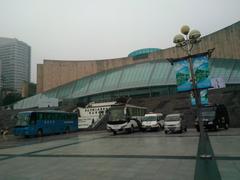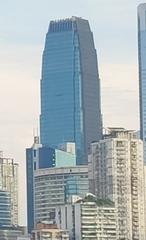G9909 Chongqing Metropolitan Area Ring Expressway
Complete Guide to Visiting the G9909 Chongqing Metropolitan Area Ring Expressway: Travel Tips and Attractions
Date: 14/06/2025
Introduction
The G9909 Chongqing Metropolitan Area Ring Expressway, also known as the Chongqing Third Ring Expressway, is a modern infrastructural marvel encircling one of China’s largest and most topographically complex cities. As a strategic transportation corridor, it eases urban congestion, strengthens inter-district connectivity, and supports the economic dynamism of the Chengdu-Chongqing Economic Circle. Since its initial planning in 2000, the expressway has evolved into a streamlined 427-kilometer national expressway, officially designated as G9909 in 2022.
Navigating Chongqing’s mountainous landscape and major rivers, the G9909 features advanced engineering such as suspension and cable-stayed bridges, long tunnels, and multi-lane carriageways. It is seamlessly integrated with China’s national expressway system, vital for regional logistics and tourism. For travelers, understanding toll systems, optimal travel times, safety considerations, and nearby attractions ensures a smooth journey. The expressway’s technological advancements, such as intelligent transportation systems and real-time monitoring, further enhance operational safety and efficiency.
This guide provides in-depth information about the G9909, covering its history, engineering highlights, practical travel tips, and socio-economic significance. For maps and official updates, refer to resources such as Wegenwiki and CQCICO.
Contents
- Introduction
- Historical Development and Route Evolution
- Engineering Features and Route Description
- Visitor Information and Travel Tips
- Technological Advancements and Smart Operations
- Socio-Economic Impact and Strategic Significance
- Route Numbering and Administrative Evolution
- Frequently Asked Questions (FAQ)
- Call to Action
- Nearby Attractions: Dazu Rock Carvings and Great Hall of the People
- Summary and Recommendations
- Sources
Historical Development and Route Evolution
Early Planning and Strategic Context
The G9909 was conceived to address Chongqing’s rapid urbanization and economic integration. Originally known as the Chongqing Third Ring Expressway, its purpose was to divert heavy traffic from the city center, streamline logistics across challenging terrain and river crossings, and connect outlying districts. (Wegenwiki; Baidu Baike)
Route Evolution and Construction Phases
- Eastern Section: Initiated with the Changfu (Changshou–Fuling, opened 2000) and Nanfu (Fuling–Nanchuan, opened 2013) expressways, including major Yangtze River crossings.
- Western Section: In the 2010s, key segments opened progressively: Hechuan–Tongliang (2014), Yongchuan–Sichuan border (2014), Tongliang–Yongchuan (2015).
- Southern Section: Included the Nanwan Expressway (Nanchuan–Wansheng, 2013), Qiwan Expressway (Qijiang–Wansheng, 2005), and the final 48-km link between G93 and G75 (2016).
- Route Streamlining: Originally 475 km, optimized to 427 km by 2020 for efficiency.
- National Designation: In 2022, the expressway received the G9909 designation, marking its national significance. (Wegenwiki; Wikidata)
Engineering Features and Route Description
Geographic and Structural Highlights
The G9909 orbits districts such as Hechuan, Changshou, Nanchuan, Jiangjin, Yongchuan, and Tongliang, situated 40–80 km from central Chongqing. The expressway includes:
- Yangtze River Crossings: Suspension bridge south of Changshou, cable-stayed bridge at Songjizhen.
- Jialing River Crossing: Near Hechuan district.
- Long Tunnels: A 6.5 km tunnel south of the eastern Yangtze crossing, paralleling the Shiyu Expressway tunnel.
- Lane Configuration: Mostly 2x2 lanes, with some 2x3 lane expansions for higher traffic areas.
Integration with Major Expressways
The G9909 connects with major routes such as G50 Huyu, G65 Baomao, G75 Lanhai, G85 Yinkun, and G93 Chengyu Ring expressways, facilitating efficient logistics and travel, especially toward Sichuan Province. (Seetao)
Visitor Information and Travel Tips
Accessibility and Toll Information
- The G9909 is a toll expressway. Rates depend on vehicle type and distance. Toll stations are located at key entry/exit points.
- The expressway operates 24/7 with unrestricted access.
Best Travel Times and Traffic Conditions
- Avoid weekday rush hours (7–9 AM, 5–7 PM).
- Anticipate increased traffic during weekends and holidays, especially near tourist exits.
Safety Tips
- Observe posted speed limits, especially in tunnels and on bridges.
- Ensure vehicle is in good condition.
- Exercise extra caution during fog, rain, or low visibility.
Service Areas and Facilities
- Multiple rest areas provide fuel, food, restrooms, and parking.
- ETC (Electronic Toll Collection) is recommended to speed up toll payments.
Navigation
- Use up-to-date GPS navigation apps for real-time traffic information and to avoid confusing interchanges.
Nearby Attractions
The G9909 provides convenient access to a range of cultural and natural attractions:
- Hechuan Ancient Town: Known for its rich heritage and historic architecture.
- Changshou Lake: A popular scenic and leisure spot.
- Nanchuan District: Gateway to Jinfo Mountain and natural reserves.
- Dazu Rock Carvings: See dedicated section below for details.
Technological Advancements and Smart Operations
The expressway utilizes intelligent transportation systems, including:
- Centralized traffic management and real-time monitoring for safety.
- Electronic toll collection (ETC) for efficiency.
- Predictive maintenance and automated alerts.
- Certain segments (e.g., Jiangjin–Qijiang) have received national awards for safety and quality. (CQCICO)
Socio-Economic Impact and Strategic Significance
The G9909 has dramatically reduced travel times between districts, facilitated logistics in the Chengdu-Chongqing economic zone, and bolstered urban-rural integration. For example, travel between Jiangjin and Qijiang has shortened from an hour to just 40 minutes. (iChongqing)
Route Numbering and Administrative Evolution
The expressway transitioned from provincial codes (S11, S0101, S80) to its current national designation (G9909) in 2022, reflecting its elevated status in China’s expressway network. (Wikidata)
Frequently Asked Questions (FAQ)
Q: What are the toll fees?
A: Toll fees vary by vehicle type and distance. Standard passenger cars pay per traveled kilometer. Check with local stations or official websites for current rates.
Q: Is the expressway open 24 hours?
A: Yes, it operates around the clock.
Q: Are there rest areas?
A: Yes, service areas with fuel, food, and restrooms are distributed along the route.
Q: Can tourists use the expressway to reach cultural attractions?
A: Absolutely. Exits provide direct access to sites like Hechuan Ancient Town, Changshou Lake, and more.
Q: When is the best time to travel?
A: Off-peak hours (avoiding rush hours and holidays) offer the smoothest travel.
Call to Action
For up-to-date traffic and toll information, download the official Chongqing Expressway app. Follow regional transportation social media for live updates and travel tips. Consult official transport resources for maps and advisories.
Nearby Attractions
Visiting the Dazu Rock Carvings: UNESCO World Heritage Monument
Overview
Located about 165 km west of Chongqing, the Dazu Rock Carvings are a UNESCO World Heritage Site with over 50,000 statues and 100,000 Chinese characters carved into cliffs and grottoes. Dating back to the 9th–13th centuries, they exemplify the integration of Buddhist, Taoist, and Confucian themes and are renowned for their artistry and preservation.
Visitor Information
- Opening Hours: Daily, 8:00 AM–5:30 PM
- Tickets: Adults 90 RMB, Students/Seniors 45 RMB, Children under 1.2m free
- Accessibility: Pathways and some ramps; comfortable shoes recommended
- How to Get There: Bus from Chongqing North Bus Station to Dazu, then local transport; taxi/private car (2.5–3 hrs); tour packages available
- Highlights: Beishan Grottoes (Buddhist sculpture), Nanzhao Grotto (Taoist art), Shizhuanshan Grotto (Confucian statues)
- Tours: Audio guides and professional guides on-site; check for special cultural events
- Nearby: Ciqikou Ancient Town, Three Gorges Museum
- Tips: Visit on weekdays or early, bring water and sun protection, follow photography rules
For more, see:
Official Dazu Rock Carvings Website
Chongqing Tourism Official Site
UNESCO World Heritage Listing
Visiting the Great Hall of the People, Chongqing
Overview
Situated in Yuzhong District, the Great Hall of the People is an architectural icon reminiscent of Beijing’s Temple of Heaven. Built between 1951–1954, it symbolizes Chongqing’s historical and cultural prominence. The hall hosts political meetings, performances, and exhibitions.
Visitor Information
- Opening Hours: Daily, 8:30 AM–5:00 PM (last admission 4:30 PM)
- Admission: Free for general entry; exhibition/performance tickets 30–100 RMB
- Guided Tours: Mandarin and English; advance booking recommended
- Highlights: Main auditorium, ornate dome, painted ceilings, grand courtyards
- Nearby: People’s Liberation Monument, Jiefangbei CBD, Chaotianmen Dock
- Accessibility: Ramps and accessible restrooms available
- Tips: Visit early or on weekdays; metro access via Line 1, Xiaoshizi Station
For event schedules and virtual tours, visit the city’s official cultural website.
Summary and Recommendations
The G9909 Chongqing Metropolitan Area Ring Expressway is a key enabler of Chongqing’s urban mobility, economic growth, and tourism. Its advanced engineering, integration with national expressways, and intelligent systems ensure efficient, safe, and flexible travel. The ring not only streamlines commutes and logistics but also serves as a gateway to Chongqing’s rich cultural and natural sites.
Travelers—whether daily commuters, freight operators, or tourists—benefit from understanding the expressway’s structure, toll mechanisms, and optimal travel times. Utilize digital tools and official resources for real-time information, and consider exploring nearby attractions such as the Dazu Rock Carvings and the Great Hall of the People to enrich your visit.
For comprehensive planning and the latest updates, consult:
Sources
- Wegenwiki - Chongqing Metropolitan Ring Expressway
- Baidu Baike - Chongqing Metropolitan Area Ring Expressway
- Wikidata - G9909
- Seetao - Traveler’s Guide to Chongqing’s Major Orbital Highway
- CQCICO - Technological Advancements and Socio-Economic Impact
- iChongqing - Commuting System and Socio-Economic Impact

